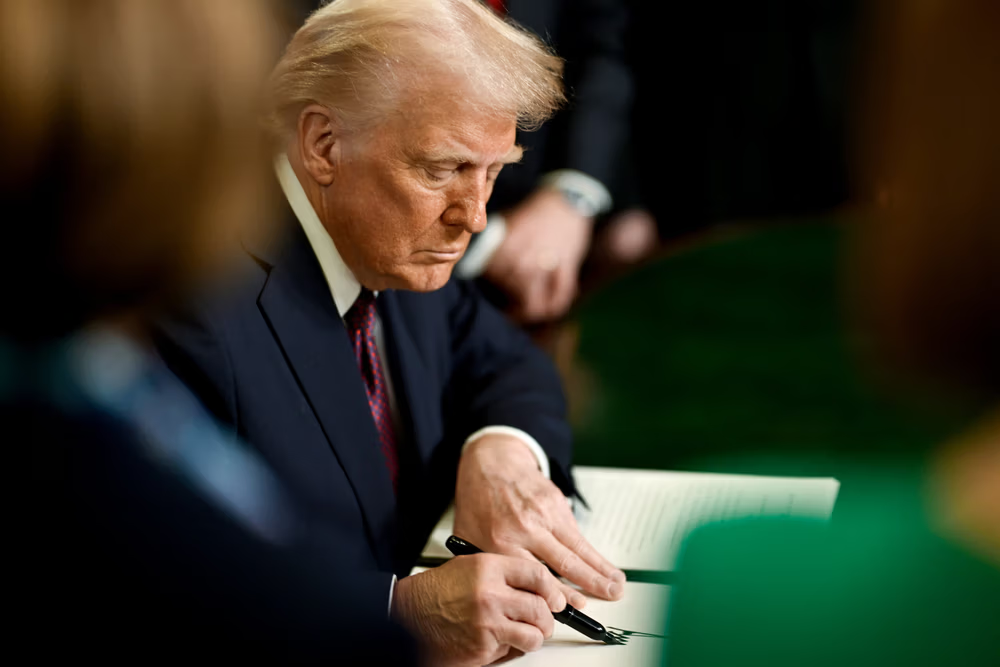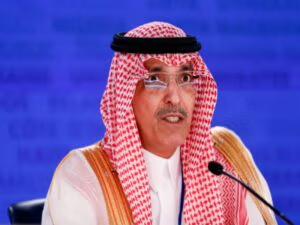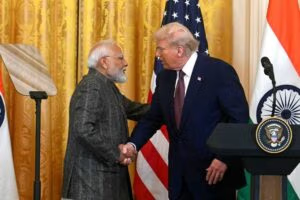President Donald Trump announced Tuesday that his administration will impose a new 50% tariff on all copper imported into the United States. This marks the fourth across-the-board tariff imposed during his second term.
“Today we’re doing copper,” Trump said during a Cabinet meeting, adding, “I believe the rate will be 50%.”
Currently, most imported cars and car parts face a 25% tariff, while imported steel and aluminum face 50% tariffs.
The White House has not yet confirmed when the copper tariff will take effect. Trump ordered a Section 232 investigation into copper imports back in February. The law allows the president to raise tariffs on national security grounds.
Economic Stakes
Copper plays a key role in the manufacturing of electronics, cars, and industrial machinery. The United States imported $17 billion worth of copper in the last year alone, with Chile being the top supplier, sending $6 billion worth to the U.S.
Following Trump’s announcement, copper futures surged 15%, hitting a record high of $5.68 per pound.
“I’ve been surprised it’s taken this long to get the copper tariff,” said Ed Mills, a Washington policy analyst at Raymond James, told CNN.
With copper prices already up 38% this year, many see the rise as a sign of stockpiling to avoid the tariff’s impact.
“A 50% increase will be a massive tax on consumers of copper,” said Ole Hansen, head of commodity strategy at Saxo Bank.
“Watch what Trump does, not what he says,” Hansen added. “Perhaps we may see a staggered approach once the administration realizes the impact on consumers of such a big move.”
Pharma Tariffs Also in Pipeline
Trump also revealed that his administration is preparing to impose a 200% tariff on pharmaceuticals “very soon.” While the timeline is unclear, the goal is to push more companies to move their drug manufacturing to the U.S.
Trump had previously excluded pharmaceuticals from tariffs during his first term. The administration opened a national security investigation into drug imports in April, which could clear the way for future tariffs.
He argued the U.S. must boost domestic drug production to avoid dependency on foreign suppliers. Several drugmakers have already announced U.S. expansions—some before Trump returned to office.
International Reaction
Australia’s Treasurer Jim Chalmers reacted Wednesday to the pharmaceutical tariff threat, saying the country is “urgently seeking” more information on the “very concerning” development.
“Our pharmaceuticals industry is much more exposed to the US market,” Chalmers said on ABC, Australia’s national broadcaster, noting the sector generates billions in exports.
Reciprocal Tariff Pause Extended
Trump also extended a pause on reciprocal tariffs until August 1. These tariffs, briefly applied in April, were scheduled to return at midnight Wednesday. Trump has continued sending letters to foreign leaders detailing the tariff increases they could face if no agreements are reached.






